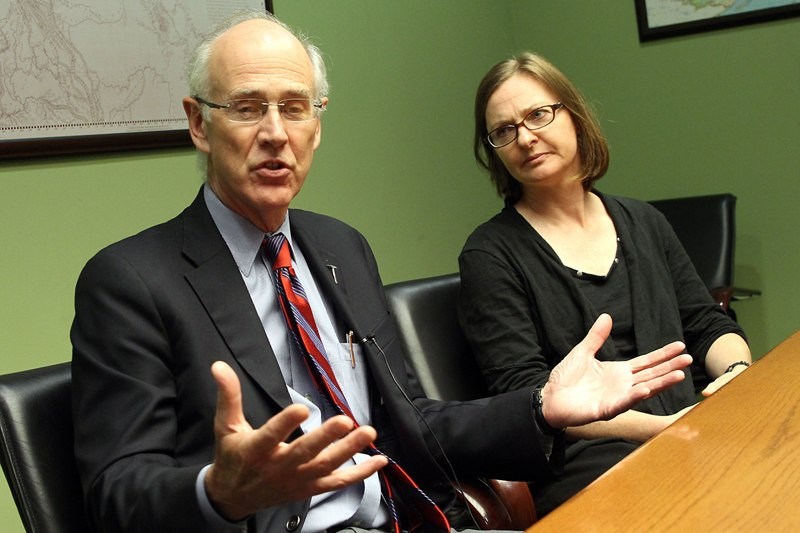Nuclear waste disposal could pose a significant threat to the Great Lakes, says the head of the Great Lakes and St. Lawrence Cities Initiative.
David Ullrich also said the group, celebrating its 10th anniversary, is also concerned about the effects of climate change around the lakes, which provide drinking water for more than 40 million people.
It’s the nuclear issue that has the organization’s executive director most concerned. He’s worried a decision to bury low-level waste less near the shores of Lake Huron could have disastrous side effects should the low-leve waste manage to leech out of its containment chamber.
He’s also concerned it sets a bad precedent, which could lead to similar decisions being made in Northwestern Ontario, where officials in towns like Nipigon and Schreiber have expressed interest in housing a nuclear waste facility.
Earlier this week they expressed opposition to a joint-review panel created to look into the issue, which has sparked outcries in Sarnia and other nearby communities.
“The primary concerns we have are No. 1, proximity to the lake. No. 2, they only considered one location and did not look at others that might be more suitable,” Ullrich said, after meeting with Thunder Bay Mayor Keith Hobbs, who will chair the committee for the next year.
“No. 3, they focused a lot of outreach in the immediate Bruce County area and those communities, but didn’t really reach out as broadly across the whole Great Lakes community, as we thought was appropriate because it has implications. And No. 4, we are concerned about the precedent of putting the waste that close.”
Ullrich said he plans to testify at public hearings on the matter next month.
While there is no immediate danger to Lake Superior, he’s worried what it could mean to the world’s largest freshwater source.
“We think in Canada there probably are a number of different locations that would all be more suitable. There is precedence. There is radioactive material that is being generated around the whole Great Lakes. If the precedent is set that it’s OK to put it that close to the Great Lakes, why not Lake Superior or anyplace else?”
Hobbs said if high-level radioactive waste has to find its way to Northwestern Ontario, he’d prefer it lands in a town like Ignace, away from the Great Lakes system.
“Of all the areas, I think that’s one of the safest areas for the Great Lakes. It’s in bedrock. They’ve done the geological testing, and it’s in the Arctic Watershed, not the Atlantic watershed – not that it would be good to have spills into the Arctic,” Hobbs said.
“But I think from our perspective, with the Great Lakes (and St. Lawrence) Cities Initiative, it would be a more ideal location. I know the town of Ignace wants that facility. It’s a lot of jobs.”
Ullrich said the group also wants both Canada and the United States to do a better job at energy planning and look more deeply into renewable energy.
“There are some good places to put wind energy and there’s some places that are not so good and I understand that’s an issue in Thunder Bay,” he said.
Nicola Crawhall, the Toronto-based deputy director of the GLSLCI, said being shoreline communities, the effects of climate change, including falling water levels, have immediate impacts.
Excessive storm water run-off and nutrients like phosphorous leeching into the waterways are also a concern.
“All those are directly related to climate change. The question is how do we adapt? What do we do to protect our infrastructure assets, our electricity assets and most importantly our residents and our businesses when we have these major events,” she said.
“Thunder Bay has a lot to share with our members and Mayor Hobbs has been doing that.”
Officials in Grand Rapids, Mich., based on lessons learned from Thunder Bay’s 2012 flood, erected sandbag walls around its water treatment plant earlier this year when flooding threatened the U.S. community.
Thunder Bay will host the Great Lakes and St. Lawrence Cities initiative in 2014.
